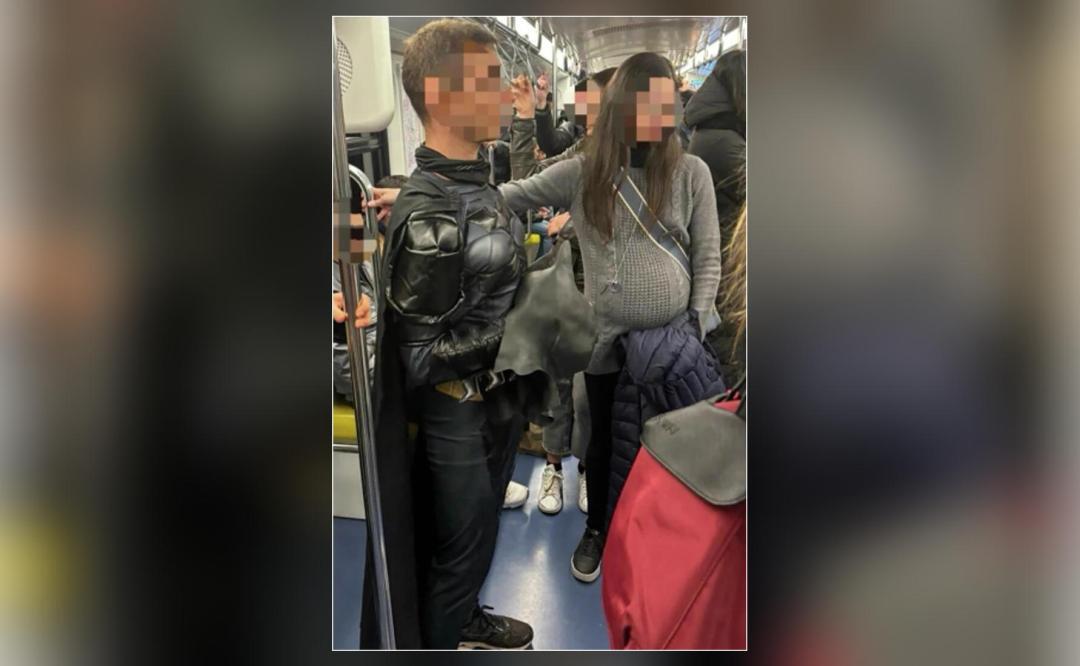
People are more likely to help others when ‘Batman’ is present, study finds
In a fascinating turn of events, researchers have discovered that the presence of a person dressed as Batman can significantly increase people’s pro-social behavior, or the act of helping others, in real-world settings. This unexpected finding has been published in the journal npj Mental Health Research, and it sheds new light on the power of subtle cues in influencing human behavior.
The study in question involved 138 observation sessions, where researchers analyzed how many passengers offered a seat to a pregnant woman on a subway. The twist? In some of these sessions, a person dressed as Batman was present, while in others, there was no such character. The results were striking: when Batman was around, people were more likely to offer their seats to the pregnant woman.
But why would the presence of a superhero like Batman have such an impact on people’s behavior? According to the researchers, it all comes down to the power of symbolism and social norms. When we see someone dressed as Batman, we are reminded of the values of courage, selflessness, and justice that the character represents. This, in turn, can inspire us to behave in a more pro-social way, as we strive to live up to these ideals.
The study’s findings have significant implications for our understanding of human behavior and social influence. They suggest that even small, subtle cues – like the presence of a person dressed as Batman – can have a profound impact on our actions and decisions. This is particularly interesting in the context of real-world settings, where people are often influenced by a complex array of factors, from social norms to environmental cues.
So, what can we learn from this study? For one, it highlights the importance of role-modeling and social influence in shaping our behavior. When we see someone behaving in a pro-social way, we are more likely to follow suit. This is often referred to as the “bystander effect,” where the presence of others can either encourage or discourage us from helping someone in need.
The study also underscores the power of symbolism and storytelling in inspiring positive change. Batman, as a cultural icon, represents a set of values and ideals that resonate deeply with many people. By tapping into these values, we can create a sense of shared purpose and social responsibility, which can, in turn, inspire us to behave in more pro-social ways.
In addition, the study’s findings have practical implications for fields like psychology, sociology, and public health. By understanding how subtle cues like the presence of a person dressed as Batman can influence our behavior, we can develop more effective interventions and strategies for promoting pro-social behavior in real-world settings.
For example, imagine a public health campaign that uses superhero characters to promote healthy behaviors, like exercise or healthy eating. By leveraging the power of symbolism and social influence, such a campaign could inspire people to make positive changes in their lives, simply by tapping into the values and ideals represented by these characters.
In conclusion, the study’s findings are a powerful reminder of the complex and multifaceted nature of human behavior. By understanding how subtle cues like the presence of a person dressed as Batman can influence our actions and decisions, we can develop more effective strategies for promoting pro-social behavior and creating positive change in the world.
As we reflect on the implications of this study, we are reminded of the enduring power of symbolism and storytelling in inspiring positive change. Whether it’s through the character of Batman or other cultural icons, we have the power to shape our own behavior and create a more compassionate, empathetic world – one small step at a time.
News Source: https://pubmed.ncbi.nlm.nih.gov/41184421/






